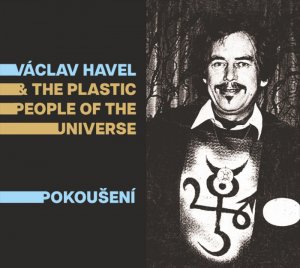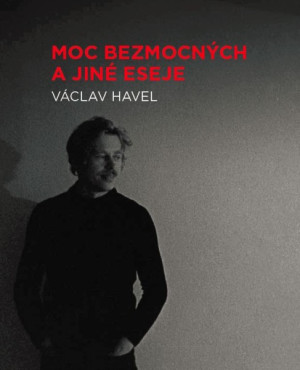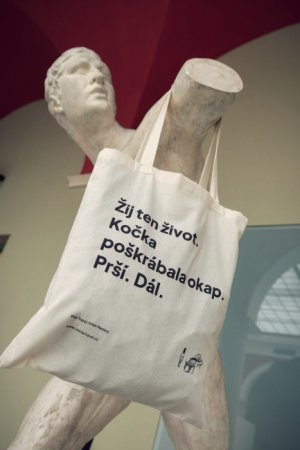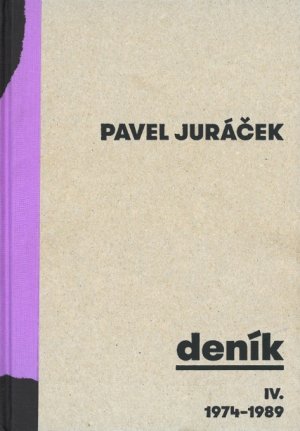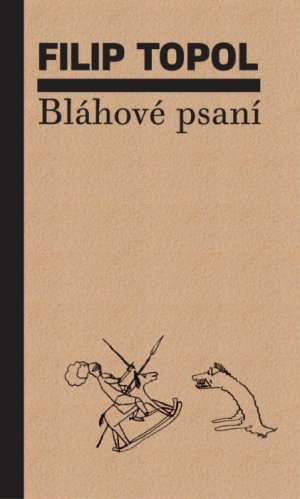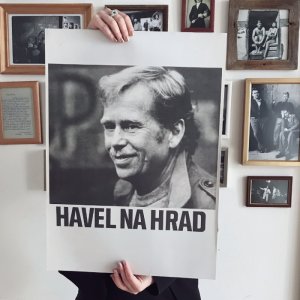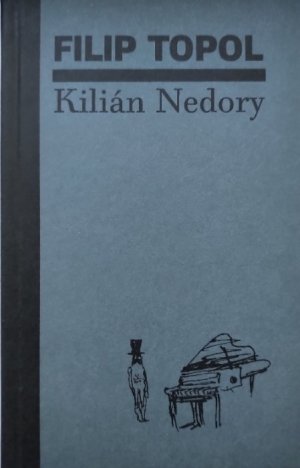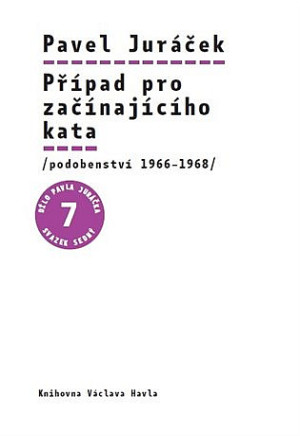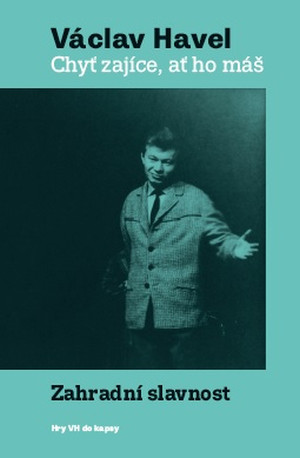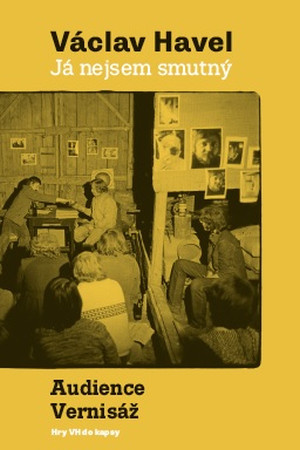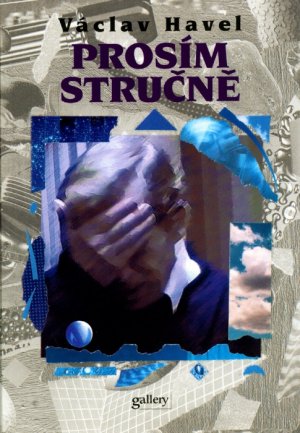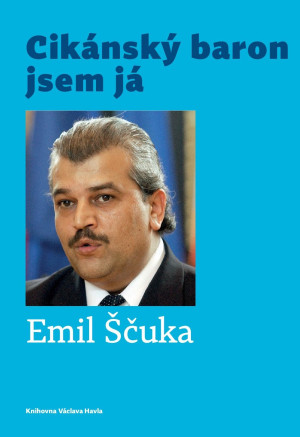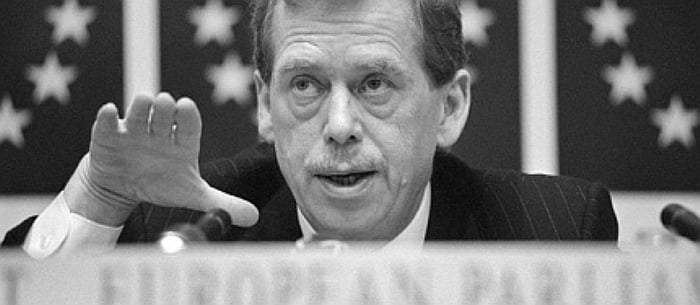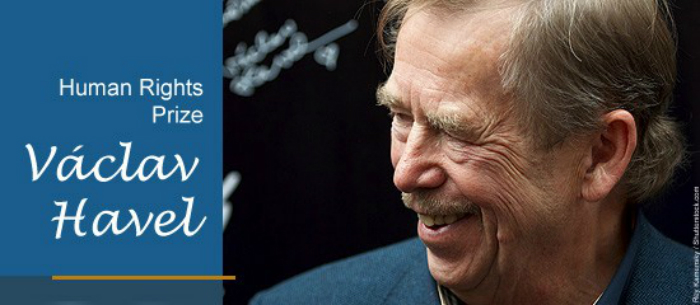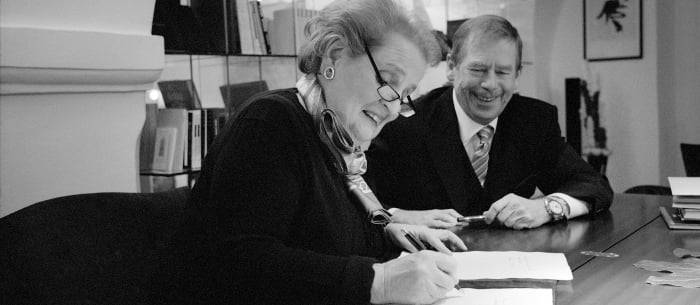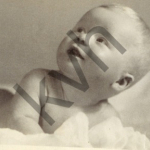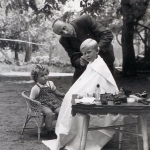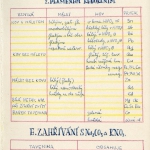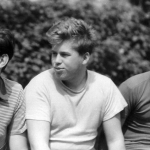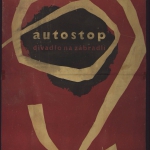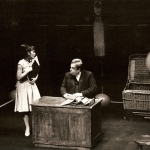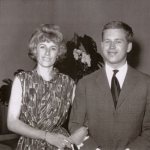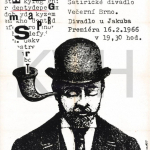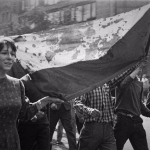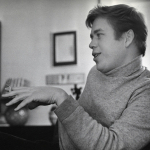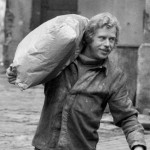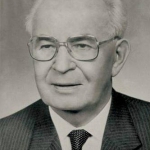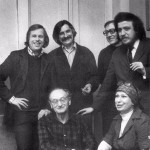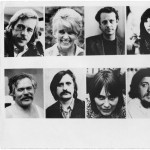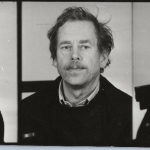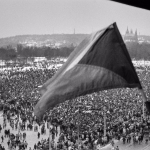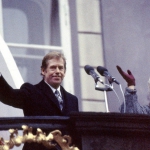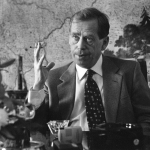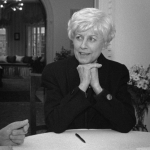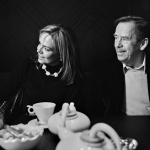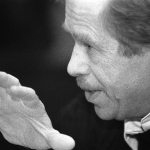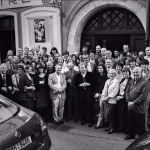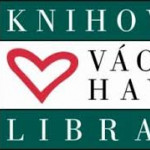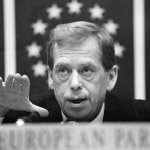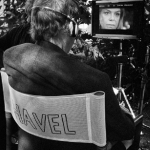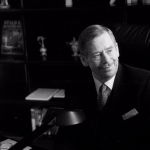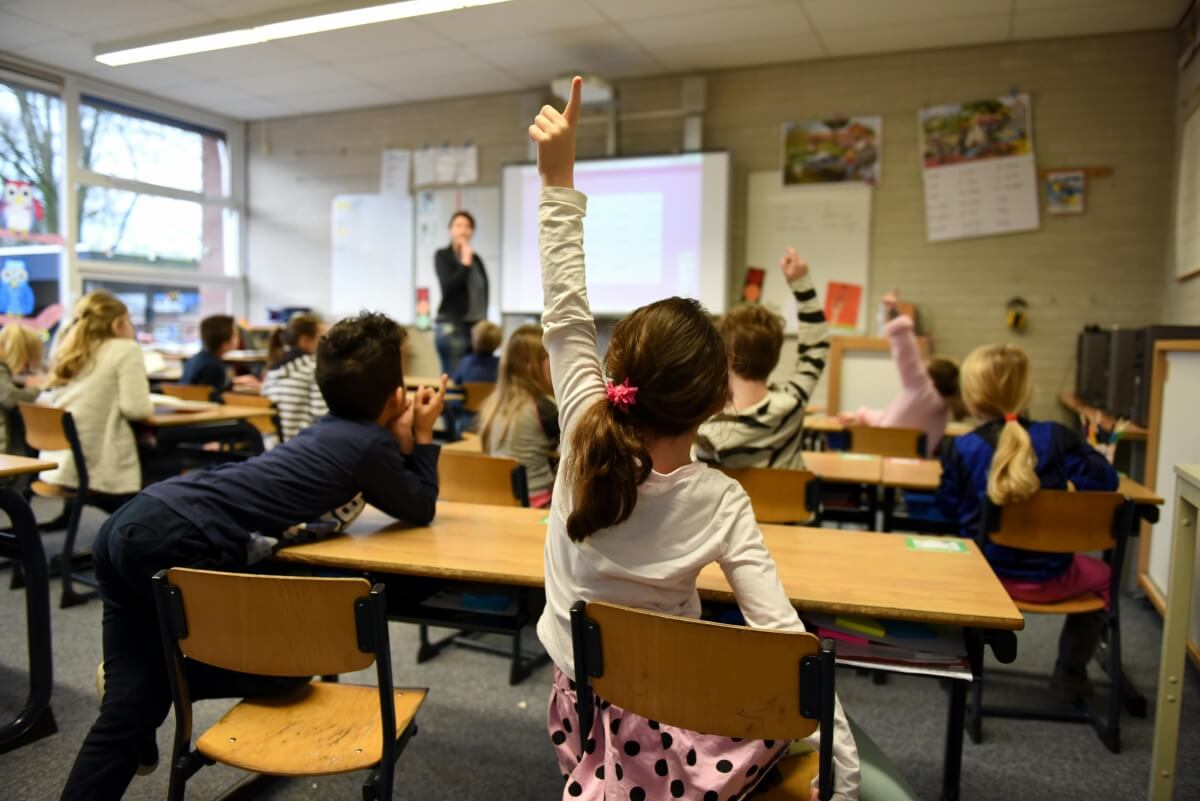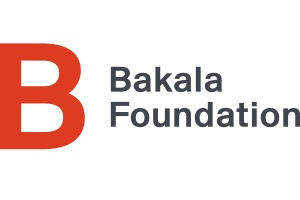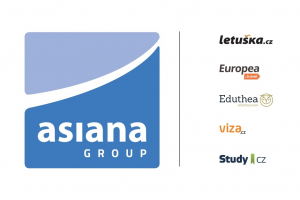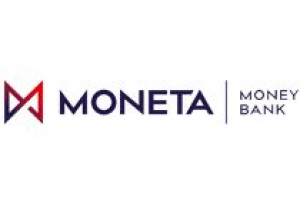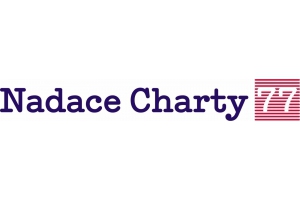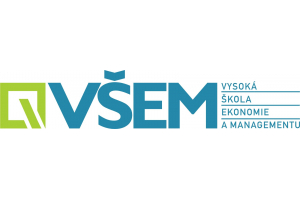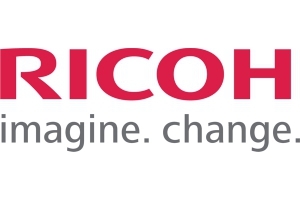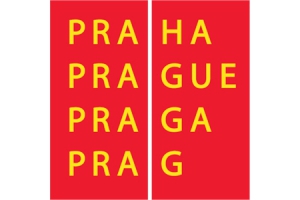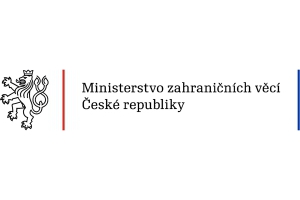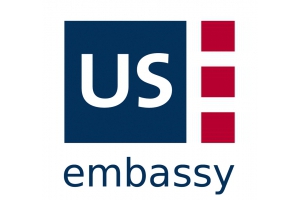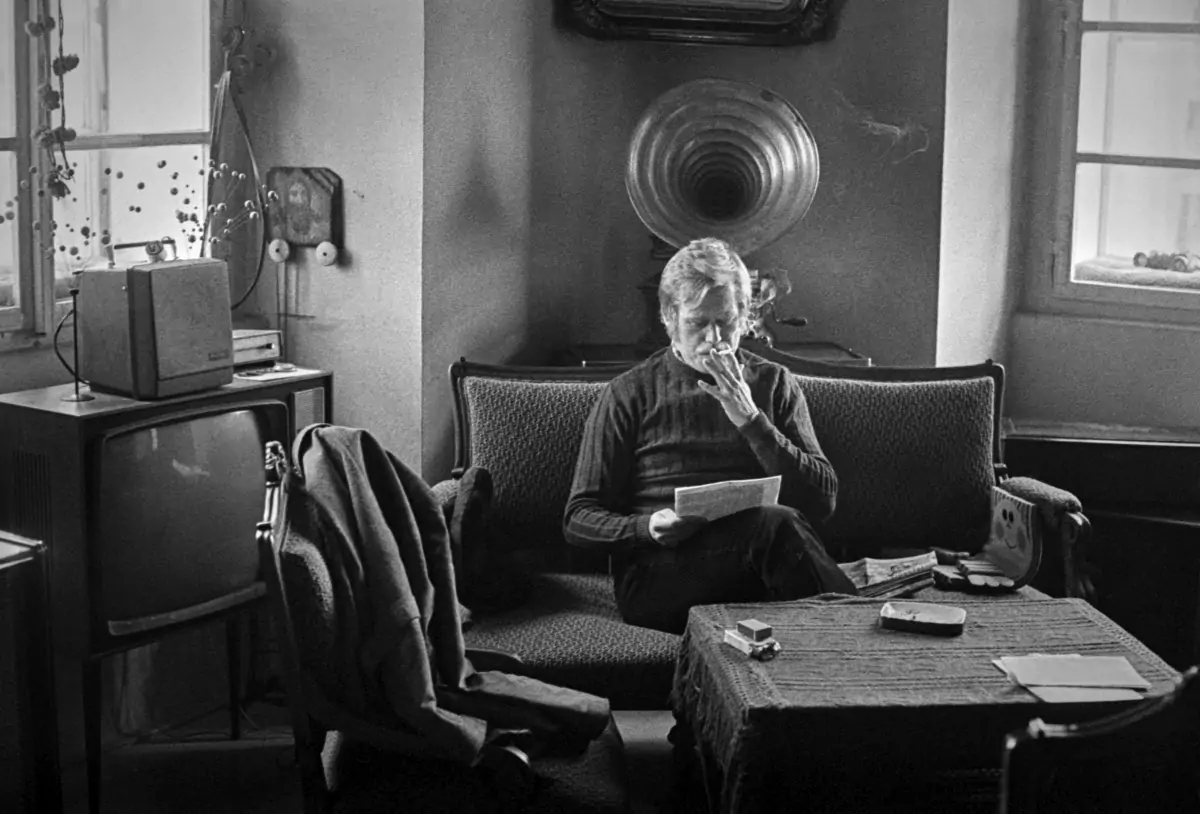
Club / News / Program
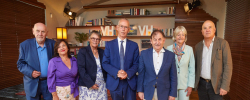
Three candidates shortlisted for the 2023 Václav Havel Prize 05/09/23
The selection panel of the Václav Havel Human Rights Prize, which rewards outstanding civil society action in defence of human rights in Europe and beyond, has today announced the shortlist for the 2023 Award. Meeting in Prague today, the panel – made up of independent figures from the world of human rights and chaired by the President of the Parliamentary Assembly of the Council of Europe (PACE) Tiny Kox – decided to shortlist the following three nominees, in alphabetical order: More
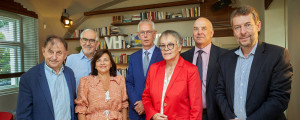
Three candidates shortlisted for the 2022 Václav Havel Human Rights Prize 06/09/22
The discussion among the seven-member jury helmed by the president of the Parliamentary Assembly of the Council of Europe centred on the importance of the issue of human rights during this tense period. The finalists include Vladimir Kara-Murza, a political prisoner and leading Russian democracy campaigner; Ukraine’s 5 AM Coalition, which gathers evidence of human rights abuses stemming from Russia’s invasion of the country; and Hungary’s Rainbow Coalition defending LGBTQIA+ rights. “This year’s selection reflects the central role that human rights play in the current European crisis,” says Michael Žantovský, jury member and executive director of the Václav Havel Library, which bestows the prize in cooperation with the Parliamentary Assembly of the Council of Europe and Nadace Charty 77.
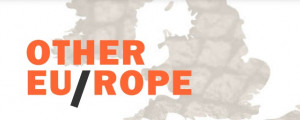
The Other Europe 27/04/22
Dear Friends, After three years we have completed the international project The Other Europe, during which, in cooperation with partner institutions, we have processed and made public recordings of interviews shot in 1987 and 1988 behind the Iron Curtain, and in exile, with important representatives of the opposition and the arts, as well as random citizens. Over those three years we have prepared video, audio and text of 106 interviews in speakers’ native languages and English translation. Despite public health restrictions in the Covid period, we have jointly prepared 16 international conferences and public presentations in six Central and Eastern European states. More
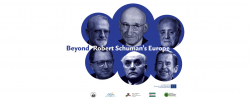
From Schuman to Havel – what next? 16/02/22
The Václav Havel Library is a proud partner of the project Beyond Robert Schuman’s Europe More
Program for April 2014<>
entry-free
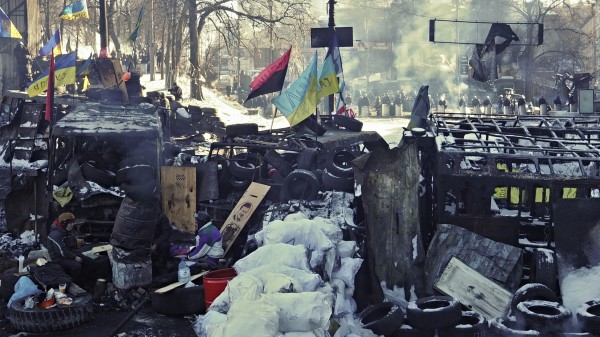
Eugen Kukla: Testimony from the streets of Kiev
- Where: Vaclav Havel Library, Řetězová 7, Prague
- When: February 28, 2014, 18:00 – April 6, 2014, 12:00
The exhibition of documentary photographs by Eugen Kukla.
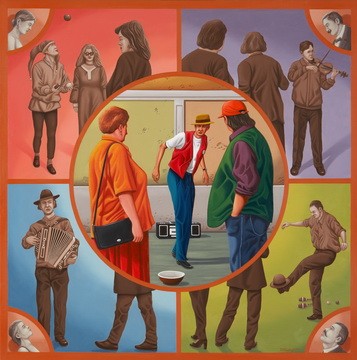
Jan Šafránek: Life around us
- Where: Montmartre Gallery
- When: March 11, 2014, 19:00 – April 6, 2014, 21:00
Opening of an exhibition of work by Jan Šafránek. Richard Drury will provide an introduction.
LIFE AROUND US
11. 3. 2014 – 6. 4. 2014
JAN ŠAFRÁNEK
Jan Šafránek (born 1948, Hradec Králové) is a visual artist with an instantly recognisable style who is known to the Czech public for his figurative paintings in particular. Originally self-taught, he began painting advertising panels for a film company in Hradec Králové. In 1974 he moved to Prague where he moved in underground circles and among the members of the Crusaders’ School of Pure Humour Without Jokes. After signing Charter 77, he was forced under pressure from the secret police to emigrate to Vienna, where he studied painting and drawing under Professor Carl Unger at the Academy of Fine Arts. A few years later he settled in Australia’s Sydney. He undertook trips to the USA, Mexico, South America and the Pacific. Since 1990 he has been living between Vienna and Prague. His most recent exhibition, On the Road, took place at the Gallery of Modern Art in Roudnice nad Labem in 2013.
The exhibition Life Around Us presents Šafránek’s oil paintings and works on paper from the 2003–2014 period, with the main subject the human figure and the world of people. The ordinary clamour of the city, people swarming on the street, everyday work and common situations: a shop assistant resignedly offering goods, a street artist exhibiting, a sleeping receptionist or a skater enjoying some free time on the ice. Men, children, beautiful women, old ladies, fat people. As if their lives were being set in contrast against the great stories of the heroes of today.
The pictures’ narrative aspect and the capturing of figures frozen in action offer a comparison with photojournalism, with photographic accounts of reality. At the same time, Šafránek’s work is also concerned with the generalisation of certain observed phenomena. He does not capture concrete figures but human characters that, via various forms of facial expression, gesture and clothing, he fixes forever. Stereotypical attitudes to life flicker in the expressions of the figures; thanks to the linking of different traditions and exotic elements, they sometimes approach a kind of metaphor for global society.
The occasional placing of the figures in abstract spaces or the breaking of the picture surface of a canvas add to the rejection of the idea of realism. The artist’s favourite motif of the “painting within a painting”, which can be multiplied countless times, reflects the Renaissance concept of the painting as a “window to the world”, while also, among other things, playing with the representation of reality.
The artist has been capturing the public life of society since the mid 1960s. In those days, his speeches of orators at party meetings, interrogations by secret police officers and delegations kissing one another contained a large dose of sarcasm. However, with the political and social changes that biting criticism disappeared. He is a gawker fascinated by human life and the world of which he is part, bearing a testimony to today’s era that some may find repellent, others moralising.
Marianna Placáková
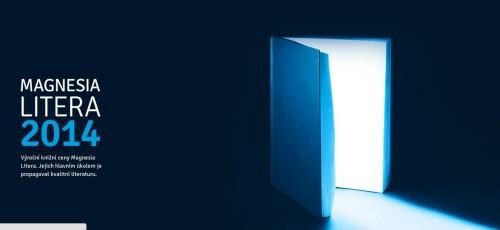
Magnesia Litera
- Where: Vaclav Havel Library, Řetězová 7, Prague
- When: April 2, 2014, 19:00 – 21:00
Readings by authors nominated in several of the seven categories in the annual Magnesia Litera book awards. Three or four writers from a range of categories will read and discuss their work. Pavel Mandys from the Litera civic association, which organises the awards, will host the evening.
Ondřej Buddeus, David Böhm: Hlava v hlavě (Litera za knihu pro děti a mládež)
Emil Hakl: Skutečná událost (Litera za prózu)
Jonáš Zbořil: Podolí (Litera pro objev roku)
Anna Zonová: Lorenz, zrady (Litera za prózu)
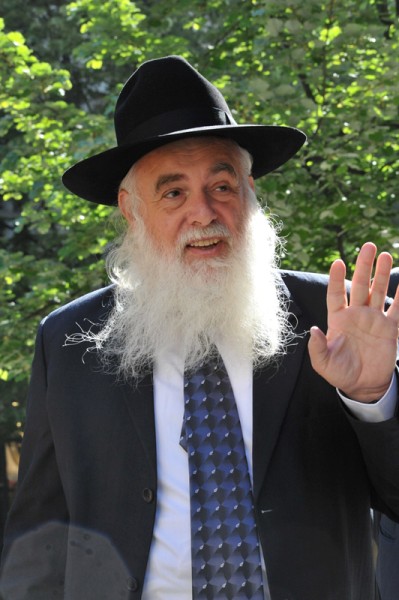
Meeting with Eliyahu Rips, 45 years after protest
- Where: Vaclav Havel Library, Řetězová 7, Prague
- When: April 3, 2014, 19:00 – 21:00
Meeting with the Israeli professor Eliyahu Rips, one of those who protested against the occupation of Czechoslovakia in 1968. Rips, a student at the Faculty of Physics and Mathematics in Riga, was deeply impacted by the news of Jan Palach’s self-immolation and several months later, on April 13, 1969, decided to follow him, dousing himself with petrol and setting himself on fire at the Freedom Memorial in central Riga. He placed a poster beside himself reading “I am protesting against the occupation of Czechoslovakia”.
A passerby extinguished the flames and Rips was arrested by the KGB. After six months in prison, he was sentenced on the basis of a “psychiatric analysis” to two years in a psychiatric clinic. After his release he emigrated to Israel where he is today professor of mathematics at the Hebrew University.
The evening is being organised by the Václav Havel Library in cooperation with the Institute for the Study of Totalitarian Regimes, the Czech Centre in Tel Aviv and the Jewish Community in Prague.
Adam Hradilek will be the host.
The debate will be held in English, with interpretation into Czech provided.

Debates with Respekt – diagnosis of the Czech right
- Where: Vaclav Havel Library, Řetězová 7, Prague
- When: April 7, 2014, 19:00 – 21:00
After six years in government, Czech conservatives do not appear in the best of shape. The ODS are hovering around the threshold for entry to the lower house, while TOP 09 are built on the popularity of an increasingly tired chairman. Why has the politics of the right failed? And have those parties any chance of acquiring the support they once had?
The debate will be chaired by Respekt editor Tomáš Sacher. Miroslava Němcová (ODS deputy chairwoman), Jan Farský (TOP 09 MP) and Jiří Pehe (political scientist) have accepted invitations to attend.
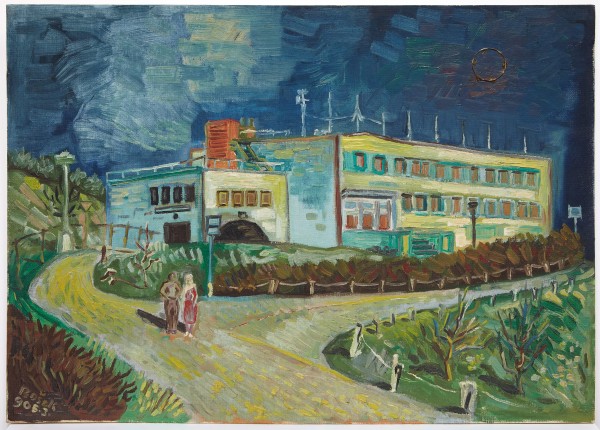
Zdeněk Košek: Cloudbuster
- Where: Vaclav Havel Library, Řetězová 7, Prague
- When: April 8, 2014, 19:00 – May 4, 2014, 18:00
Launch of exhibition of work by Zdeněk Košek from the turn of the 1980s and 1990s.
Music: Houpací koně. The exhibition takes place in cooperation with the ABCD Praha civic association and runs until 4 May 2014.
ZDENĚK KOŠEK
“It was me who appointed Václav Havel president.”
Exiles internal and external II
Zdeněk Košek (*1949 Duchcov) is a self-taught artist mainly focused on oil painting and drawing. He studied typography and briefly attended graphics school in Prague. In the 1970s and ‘80s he worked as a compositor and produced caricatures and humorous drawings for regional newspapers and magazines. He has had a lifelong interest in the weather and meteorological phenomena. Since 1989 he has been on an invalidity pension. He has exhibited dozens of times in the Czech Republic and abroad and his work appears in ABCD, one of the most comprehensive art brut anthologies. He lives in Ústí nad Labem.
The exhibition Cloudbuster chiefly presents Zdeněk Košek’s art from the turn of the 1980s and ‘90s. This was a crucial time in his work and life, when both his artistic style and outlook on life underwent transformation. He switched from magazine caricatures to obsessional records stuffed with a plethora of information. He recorded various sounds, bird flight, wind direction, unending combinations of numbers and chemical elements, alongside personal experiences and data. He felt responsible for the running of a world in which his main mission is to control the weather. Ritualistic record-keeping, as a direct means of influencing the atmosphere, guaranteed him the maintenance of order.
Košek put his fevered spasms of thought down in the form of meteorological charts, formulas and plans on almost anything that came to hand – school copybooks, envelopes, stationary, tickets. At the same time, he printed by hand synoptic maps on which he sketched, with factographic precision and using coloured markers and crayons, rainfall, wind speed, anticyclones, cyclones, ridges of high pressure, pressure troughs and atmospheric fronts. Despite an excessive pressure of information of a explosive nature, a detailed and elaborated system lay behind them.
What was particularly attractive to Košek about weather phenomena was the accumulation of energy in the form of storms, rainfall and gales, which he explored continuously. He did so both on visits to distant meteorological stations in Kočkov and on the top floor of his apartment building in the Skřivánek estate, his “weather kitchen”, as he puts it, where he lives and works today.
Alongside drawings, the exhibition features oil paintings on which the artist has, in an expressionistic style, recorded his surroundings in documentary fashion (Congestus over the Northern Terrace, 1.6.1996). His compelling drawings may also be understood as mental maps or landscapes in which Košek’s parallel world plays out: incredibly colourful, enabling movement in time, across continents. Of his former situation Zdeněk Košek says: “I didn’t feel powerless – I was too powerful.”
Marianna Placáková
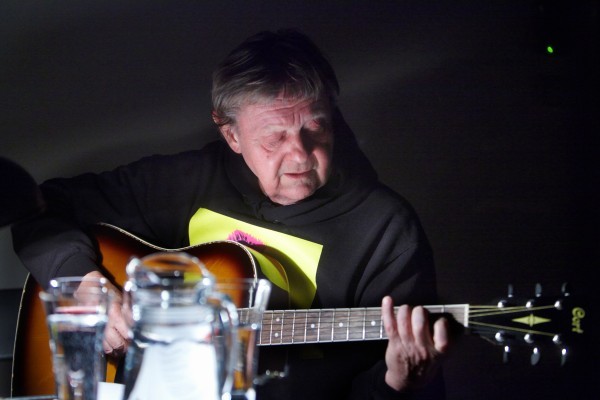
The Czech underground IV: The politics of memory between the control of society and ethics – Vladimír Merta
- Where: Vaclav Havel Library, Řetězová 7, Prague
- When: April 9, 2014, 10:30 – 12:30
Lecture dedicated to the Czech underground on the subject: Between the underground and collaboration. The Czech Underground series is organised by the Historical Sociology department at Charles University’s Faculty of Humanities and the Václav Havel Library and headed by sociologist Nicolas Maslowski.
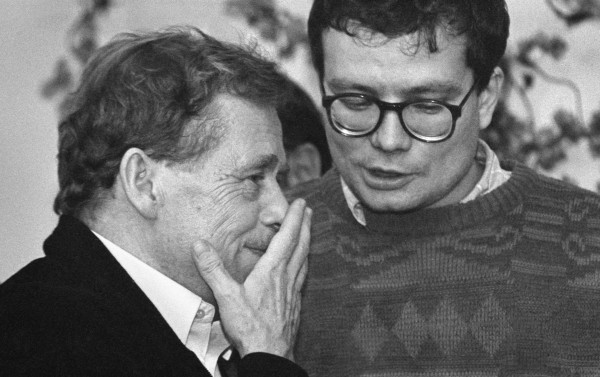
Talks in English – Alexandr Vondra and Václav Havel
- Where: Vaclav Havel Library, Řetězová 7, Prague
- When: April 9, 2014, 19:00 – 21:00
The first in a short series of talks in English with colleagues and friends of Václav Havel. Alexandr Vondra is a former dissident, Charter 77 spokesman, advisor to Václav Havel, Czech Ambassador to the United States, and politician. The event will focus on Václav Havel’s views on foreign policy, as well as today's situation in Ukraine, Russia and elsewhere as viewed by his former diplomat, exactly fifteen years after the country's accession to NATO. Chaired by writer and journalist David Vaughan.
Alexandr Vondra was active as a dissident and a signatory of Charter 77. In 1989 he was the Charter 77 spokesman and in
the spring of that same year he co-wrote the petition “A Few Sentences”. At the time of the Velvet Revolution in November
1989 he was one of the founders of Civic Forum. Between 1990 and 1992 he was an advisor to President Havel on foreign
affairs and from 1992 to 1997 he was Deputy Foreign Minister. From 1997-2001 he served as the Czech Ambassador to
the United States. From September 2006 to January 2007 he was Czech Foreign Minister. In October 2006 he was elected
to the upper house of the Czech Parliament, the Senate, for the Civic Democratic Party. From January 2007 to May 2009
he was Minister for European Affairs and from July 2010 to December 2012 he was Defence Minister.
David Vaughan is a broadcaster, journalist and university lecturer. He is author of the book “Battle for the Airwaves”
on the role of the media in the run-up to WWII. For eight years he was editor-in-chief of Radio Prague, the international
service of Czech Radio, and prior to that he was the Prague correspondent of the BBC. He has won national and
international awards for his radio work. His documentary novel “Slyšte můj hlas” (Hear My Voice) was serialized by
Czech Radio in 2013 and is to be published this year.
Admission free; no reservation required
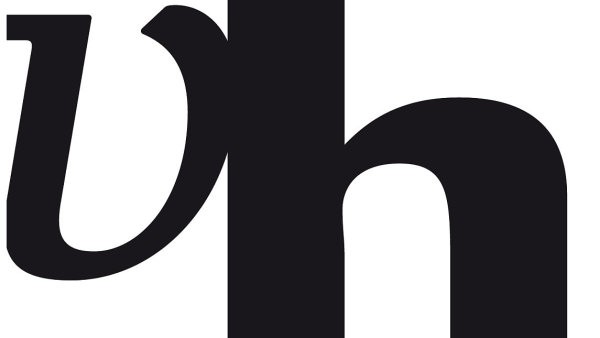
Michael Špirit: Reading about Václav Havel
- Where: Vaclav Havel Library, Řetězová 7, Prague
- When: April 10, 2014, 19:00 – 21:00
From extensive literature related to Václav Havel, editor Michael Špirit has selected an anthology of the most valuable critical reflections on his dramas and essays. Essays by Eva Uhlířová, Jan Grossman, Sergej Machonin, Jindřich Černý, Ivan M. Jirous and Jana Patočková and other texts focus on the dominant themes and structures of Havel’s work. The collection aims to revive discussion of the author’s artistic and critical output, along with the ways to explore it. Michael Špirit and his guests will discuss the adventures that accompanied the creation of the collection submitted.
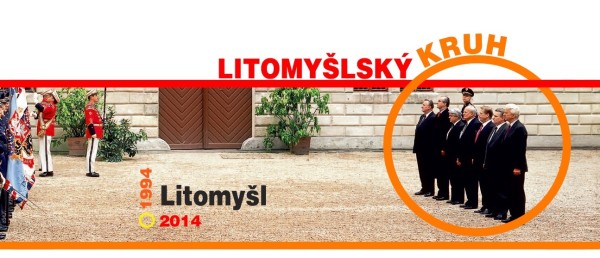
The Litomyšl Circle
- Where: Castle Area, Litomyšl
- When: April 12, 2014, 10:00 – 22:00
Twenty years ago, on 15 and 16 April 1994, the then Czech president, Václav Havel, held a meeting in Litomyšl with six other Central European presidents: Slovakia’s Michal Kováč, Slovenia’s Milan Kučan, Hungary’s Arpád Gőncz, Germany’s Richard von Weizsacker, Austria’s Thomas Klestil and Poland’s Lech Walesa. The gathering, at Litomyšl’s Renaissance chateau, was the first of its kind. Havel had organised it in order to revive friendly relations between the countries of Central Europe after the end of the Cold War. He chose the small Eastern Bohemian town of Litomyšl for its informal atmosphere and the chance of discussions between the presidents and colleagues taking place away from the official negotiating table. The programme was dominated by informal meetings and concluded with a television debate on Central Europe in which all of the presidents took part. A homely, hospitable atmosphere was successfully created, the success of the talks exceeded expectations and meetings of the presidents later became a regular tradition. Today 17 of them meet, though the original group are still referred to as “the Litomyšl Circle”.
10:00 Chateau Congress Hall
Press conference and ceremonial opening of exhibitions:
- A Heart for Václav Havel (Chateau Cellars)
- Renewal of exhibition of sculptures by Olbram Zoubek (Chateau Cellars)
- Exhibition of photographs and documents from the “Meeting of Seven Presidents” (Chateau Congress Hall)
- Daniel Pešta: Genetic Codes – My Diary with V.H. (Chateau Congress Hall)
- Petr Hájek: Triangle (Chateau Riding School)
Free admission to exhibitions 10:00–18:00
11:00–13:00 Chateau Brewery
Panel I: Round table – the seven presidents – the start of the “Litomyšl” phenomenon?
Main participants: Zdeněk Lukeš, Marta Smolíková, David Vávra, Jiří Kuděla, Jiří Brýdl, Jakub Skalník, Miroslav Brýdl, Michal Kortyš – chaired by Pavlína Kvapilová
14:00–15:30 Chateau Congress Hall
Panel II: Round table: Václav Havel, a visionary in politics
Karel Schwarzenberg, Jacques Rupnik, Jindřich Šídlo, Josef Pleskot, Jan Macháček – chaired by Pavlína Kvapilová, registration atrecepce@smetanovalitomysl.cz
16:30–18:00 Chateau Congress Hall
Panel II: The significance of the meeting of seven presidents for Central Europe
Miroslav Kunštát, Petr Drulák, Jacques Rupnik, Luboš Dobrovský – chaired by Pavlína Kvapilová, registration atrecepce@smetanovalitomysl.cz
19:00 Arched Hall, Chateau Brewery
Václav Havel: The Garden Party
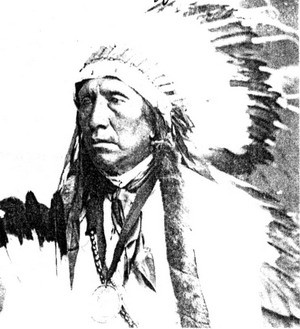
Markéta Křížová: Indians in Latin America: From insignificance to the presidential Palace
- Where: Vaclav Havel Library, Řetězová 7, Prague
- When: April 15, 2014, 19:00 – 21:00
Final lecture in a series conceived by Markéta Křížová (Centre for Ibero-American Studies at the Arts Faculty of Charles University).
For the entire 19th century and much of the 20th, Latin American Indians were virtually invisible; they were erased from political life, while their culture was repressed. However, in recent decades they have begun to take their fates into their own hands thanks to a concurrence of social processes and growing sensitivity on the part of the international public to the issue of the “fourth world”.
The presentation of the Nobel Price to Rigoberto Menchú in 1992, the reaction to the Zapatista uprising in southern Mexico and the fact that the men boasting Indian origin became the presidents of Peru and Bolivia have been landmarks as the Indian question has gained visibility throughout Latin America. At the same time, the depth of social and economic problems has become ever clearer while fresh problems are being caused by tourism, growing economic globalisation and the devastation of the environment.
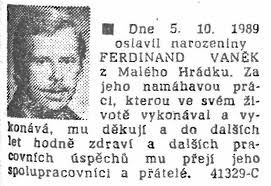
Challenges, paradoxes, plays: Václav Havel – V. The Vaňek principle
- Where: Vaclav Havel Library, Řetězová 7, Prague
- When: April 16, 2014, 19:00 – 21:00
Ferdinand Vaněk has traversed the Czech theatre scene for almost 40 years. He was born at Hrádeček somewhat by the way, for the amusement of friends: “... he usually doesn’t speak or really do anything on stage, but by his very existence and presence on stage, the fact he is who he is, he forces those around him to reveal themselves in some way.” We will speak about Havel’s Audience, Unveiling and Protest, while Lenka Jungmannová will explore the entire range of Vaněk plays, including therefore dramas by Pavel Kohout, Pavel Landovský and Jiří Dienstbier.
Clips from various Czech and international productions will be played, while we also recall the legendary tape recording of the author in the role of Vaněk with Pavel Landovský playing the brewer and other parts.
This series dedicated to the plays of Václav Havel is organised by Anna Freimanová.
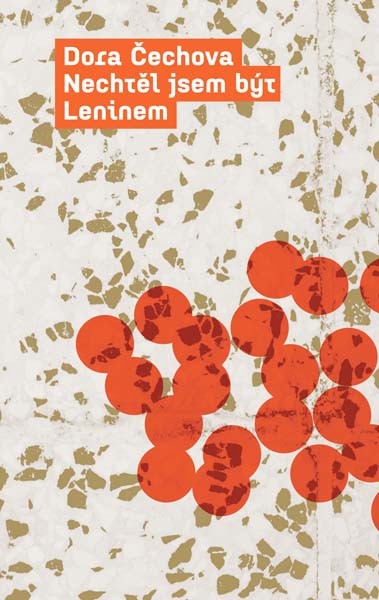
Contemporary Czech literature at Labryint
- Where: Vaclav Havel Library, Řetězová 7, Prague
- When: April 22, 2014, 19:00 – 21:00
Alongside her acclaimed book of short stories Nechtěl jsem být Leninem (I Didn’t Want to Be Lenin), Dora Čechova will read samples from her latest work, while debutant Martin Jun will present the manuscript of his novel Smrt spisovatele K. (The Death of Novelist K.), which is set for publication this autumn.
Hosted by Joachim Dvořák, editor in chief of the Labyrint publishing house.
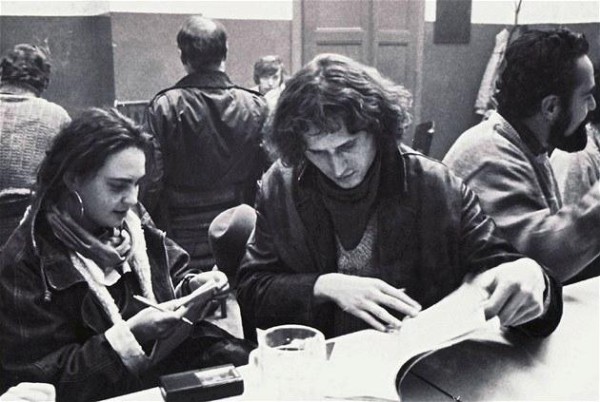
The Czech underground V: The politics of memory between the control of society and ethics – Krystyna Krauze
- Where: Vaclav Havel Library, Řetězová 7, Prague
- When: April 23, 2014, 10:30 – 12:30
Lecture dedicated to the Czech underground on the subject: A comparison with the Polish underground. The Czech Underground series is organised by the Historical Sociology department at Charles University’s Faculty of Humanities and the Václav Havel Library and headed by sociologist Nicolas Maslowski.

Jan Macháček's debate: The Czech Republic and Europe’s energy and economic dependence on Russia
- Where: Vaclav Havel Library, Řetězová 7, Prague
- When: April 23, 2014, 18:00 – 20:00
The Czech Republic and Europe’s energy and economic dependence on Russia and other themes related to the Europe and world's answer to Russian aggression of the Crimea and related to the current situation in the Russian-Ukranian conflict will be discussed at by journalist and analyst Jan Macháček and his guests. Among those invited are Luboš Dobrovský, Petr Kolář, Luděk Niedermayer, Martin Ehl and Michal Šnobr.
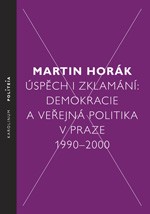
Martin Horák: Success and disappointment
- Where: Vaclav Havel Library, Řetězová 7, Prague
- When: April 24, 2014, 19:00 – 21:00
Democracy and Public Policy in Prague 1990–2000.
This book presentation and debate with the author, a Canadian political scientist of Czech origin, will illuminate the numerous mysteries surrounding the poor performance of the public administration in contemporary Prague. The year 1990 brought a renewal of democratic administration to the city. What followed included numerous dubious decisions and public disillusionment, which Prague is still going through today. Horák arrives at the roots of the current situation via an analysis of the political decisions of the 1990s.
After the fall of communism new political representatives, faced with an unstable political environment, resorted to simple, short-term solutions. Such behavior ingrained problematic political structures and norms in Prague, creating new hard-set interests that it is far from easy to get rid of…
In cooperation with the Karolinum publishing house.
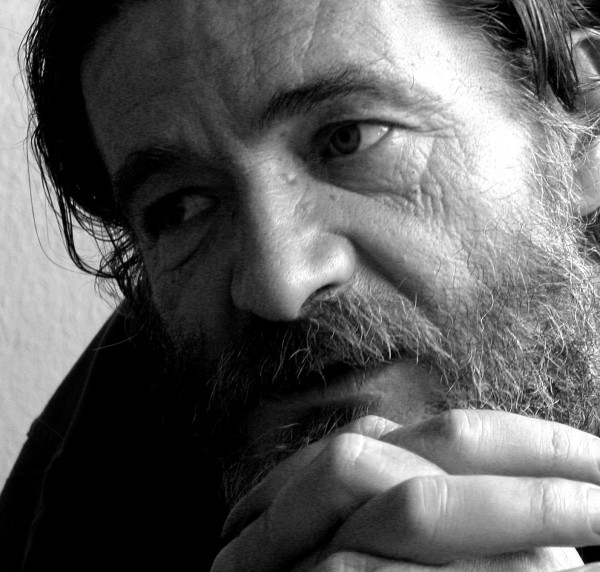
Zdeněk Košek presents himself
- Where: Vaclav Havel Library, Řetězová 7, Prague
- When: April 28, 2014, 19:00 – 21:00
An evening with Zdeněk Košek, a rainologist and stormologist. After the screening of a short film portrait, (Zdeněk Košek, directed by Bruno Decharme, 13 min., abcd, 2005) a discussion on his lifetime’s art will follow.
The evening will be hosted by Jaromír Typlt and Terezie Zemánková.
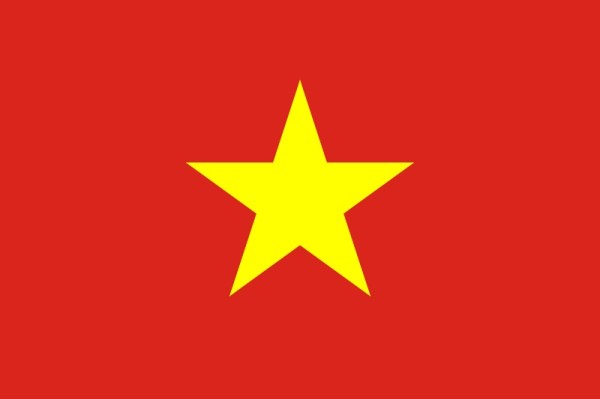
Václav Havel and Vietnam. Vietnam today
- Where: Vaclav Havel Library, Řetězová 7, Prague
- When: April 29, 2014, 19:00 – 21:00
At the time of the “Velvet Revolution”, tens of thousands of Vietnamese lived in Czechoslovakia. What impression did the country’s rapid departure from communism make on them? And do the ideas and views of VH find fertile ground in the country today?
On the second anniversary of his death, the Saigon publisher Giay Vun will issue a collection of essays by VH under the title “The Power of the Powerless” (An Open Letter to Gustav Husák, A Word on Words, Politics and Conscience, The Power of the Powerless, On the Meaning of Charter 77).
The foreword has been penned by Petr Pithart and Václav Bělohradský, while the translation was done by the well-known translator Pham Nguyen Truong and members and friends of the Van Lang civic association.
The book will be presented alongside a debate on the current situation regarding adherence to human rights in Vietnam. Participants will include Václav Trojan, Quang Thanh, a Vietnamese journalist living in Bratislava, and Van Lang members Nguyen Minh, Nguyen Quoc Vu and Pham Huu Uyen.
Havel Channel
Havel Channel je audiovizuální projekt Knihovny Václava Havla, jehož cílem je šířit myšlenkový, literární a politický odkaz Václava Havla, bez ohledu na vzdálenost, zeměpisné hranice či nouzové stavy. Jeho páteř tvoří debaty, vzdělávací projekty a rozhovory. Velký prostor je věnován též konferencím, autorským čtením, záznamům divadelních inscenací a koncertům. Audiovizuální projekt Knihovny Václava Havla Havel Channel se uskutečňuje díky laskavé podpoře Karel Komárek Family Foundation.
Publications / E-shop
The central focus of the Library’s publishing programme is the life and work of Václav Havel, his family and close collaborators and friends. For clarity, the programme is divided into six series: Václav Havel Library Notebooks, Václav Havel Library Editions, Student Line, Talks from Lány, Václav Havel Documents, Works of Pavel Juráček and Václav Havel Library Conferences. Titles that cannot be incorporated into any of the given series but which are nonetheless important for the Library’s publishing activities are issued independently, outside the series framework.
Diary IV. 1974–1989
399,- CZK
Foolish Writing
299,- CZK
Havel to the Castle
149,- CZK
Kilián Nedory
199,- CZK
Case for a Novice Headsman
199,- CZK
I am not sad. Audience & Vernissage
129,- CZK
To the Castle and Back
249,- CZK
I am the Gypsy Baron
299,- CZK
Conferences & prizes
Václav Havel European Dialogues
The Václav Havel European Dialogues is an international project that aims to initiate and stimulate a discussion about issues determining the direction of contemporary Europe while referring to the European spiritual legacy of Václav Havel. This idea takes its main inspiration from Václav Havel’s essay “Power of the Powerless”. More than other similarly focused projects, the Václav Havel European Dialogues aims to offer the “powerless” a platform to express themselves and in so doing to boost their position within Europe.
The Václav Havel European Dialogues is planned as a long-term project and involves cooperation with other organisations in various European cities. Individual meetings, which take the form of a conference, are targeted primarily at secondary and third-level students, as well as specialists and members of the public interested in European issues.
Prague 2022Olomouc Prague 2023PragueMnichov 2020Brussels 2020Prague 2019Brussels 2019Prague 2018Brussels 2018Europe at the Crossroads (e-book)Prague 2017Brussels 2017Prague 2016Brussels 2016Prague 2015Brussels 2015Brussels 2014Berlin 2014Prague 2014 - J. GauckBruges 2014Prague 2014
Václav Havel Human Rights Prize
The Václav Havel Human Rights Prize is awarded each year by the Parliamentary Assembly of the Council of Europe (PACE) in partnership with the Václav Havel Library and the Charta 77 Foundation to reward outstanding civil society action in the defence of human rights in Europe and beyond.
11th Year of the Prize (2023)10th Year of the Prize (2022)9th Year of the Prize (2021)8th Year of the Prize (2020)7th Year of the Prize (2019)6th Year of the Prize (2018)5th Year of the Prize (2017)4th Year of the Prize (2016)3rd Year of the Prize (2015)2nd Year of the Prize (2014)1st Year of the Prize (2013)History of the prize
Havel - Albright Transatlantic Dialogues
Since the first Václav Havel Transatlantic Dialogues at GLOBSEC and FORUM 2000 conferences last year, we have lost another stalwart advocate of the transatlantic bond and of the need to face threats to democracy and international order together on both sides of the Atlantic, the former US Secretary of State Madeleine Albright. In view of the close bond between Václav Havel and Madeleine Albright and, after Havel's death, between the Secretary and the Library, the Václav Havel Library, with the approval of Madeleine Albright's family, renamed and rebranded the program as The Havel-Albright Transatlantic Dialogues (HATD), after the two major figures with roots in Central Europe who have personified the bond. Together, Václav Havel and Madeleine Albright symbolize the transatlantic relationship and the fundamental values underpinning it perhaps better than any other two people in recent history. The upcoming Dialogues “The Indispensable Woman: The Legacy of Madeleine K. Albright”, at the FORUM 2000 conference on September 1, and at the “Havel and our Crisis” conference at Colby College, ME, on September 28, will thus become venues for a well-deserved tribute to the pair we all respected and admired.
Transatlantic Dialogues 2021Transatlantic Dialogues 2022HATD 2022 Prague
Václav Havel
Václav Havel
* 5. 10. 1936 Praha
† 18. 12. 2011 Hrádeček u Trutnova
- spisovatel a dramatik, publicista a filozof
- jeden z trojice prvních mluvčích Charty 77
- vůdčí autorita československé společenské změny v listopadu 1989
- poslední prezident Československa a
- první prezident České republiky
- celoživotní zastánce lidských práv a svobod doma i ve světě.
Educational projects
Archive / Documentation centre / Research projects
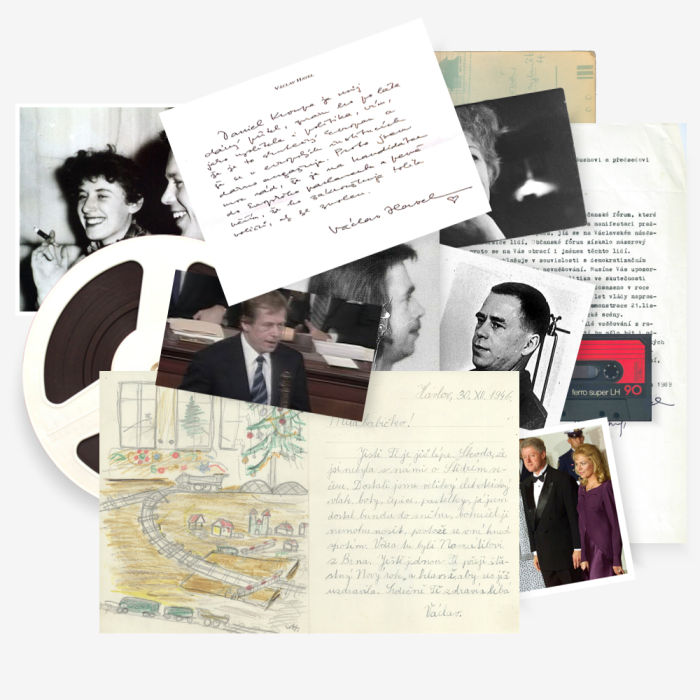
The Václav Havel Library is gradually gathering, digitizing, and making accessible written materials, photographs, sound recordings and other materials linked to the person of Václav Havel.
- 71121 records in total
- 28050 of events in the VH's life
- 2831 of VH's texts
- 2125 of photos
- 403of videos
- 568of audios
- 6602of letters
- 15101of texts about VH
- 8269 of books
- 40737of bibliography records
Access to the database of the VHL’s archives is free and possible after registering as a user. Accessing archival materials that exist in an unreadable form is only possible at the reading room of the Václav Havel Library, Ostrovní 13, 110 00 Prague 1, every Tuesday (except state holidays) from 9:00 to 17:00, or by prior appointment.
We will be glad to answer your queries at archiv@vaclavhavel-library.org.
Sign in (registered users only)
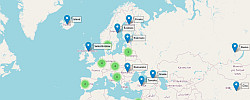
Havel in a nutshell
The virtual exhibition Václav Havel in a Nutshell places the life story of Václav Havel in the broader cultural and historic context in four chronologically distinct chapters with rich visual accompaniment. The exhibition is supplemented by the interactive map Flying the World with Václav Havel, which captures in physical form Havel’s global “footprint”.
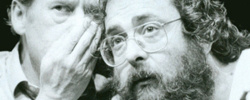
Vladimir Hanzel's revolution
Collage of recollections, images and sound recordings from Vladimír Hanzel, President Václav Havel’s personal secretary, bringing the feverish atmosphere of the Velvet Revolution to life.
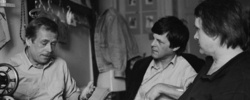
Václav Havel Interviews
A database of all accessible interviews given to print media outlets by the dramatist, writer and political activist Václav Havel between the 1960s and 1989. The resulting collection documents the extraordinary life story of an individual, as well as capturing a specific picture of modern Czechoslovak history at a time when being a free-thinker was more likely to lead to jail than an official public post.
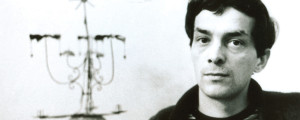
Pavel Juráček Archive
The Pavel Juráček Archive arose in February 2014 when his son Marek Juráček handed over six banana boxes and a typewriter case from his father’s estate to the Václav Havel Library. Thousands of pages of manuscripts, typescripts, photographs, documents and personal and official correspondence are gradually being classified and digitalised. The result of this work should be not only to map the life and work of one of the key figures of the New Wave of Czechoslovak film in the 1960s, but also to make his literary works accessible in the book series The Works of Pavel Juráček.
The aim of the Václav Havel Library is to ensure that Pavel Juráček finds a place in the broader cultural consciousness and to notionally build on the deep friendship he shared with Václav Havel. Soon after Juráček’s death in 1989 Havel said of him: “Pavel was a friend of mine whom I liked very much. He was one of the most sensitive and gentle people I have known – that’s why I cannot write more about him.”
All about Library
The Václav Havel Library works to preserve the legacy of Václav Havel, literary, theatrical and also political, in particular his struggle for freedom, democracy and the defence of human rights. It supports research and education on the life, values and times of Václav Havel as well as the enduring significance of his ideas for both the present and future.
The Václav Havel Library also strives to develop civil society and active civic life, serving as a platform for discussion on issues related to the support and defence of liberty and democracy, both in the Czech Republic and internationally.
The main aims of the Václav Havel Library include
- Organizing archival, archival-research, documentary, museum and library activities focused on the work of Vaclav Havel and documents or objects related to his activities, and carries out professional analysis of their influence on the life and self-reflection of society
- Serving, in a suitable manner, such as through exhibitions, the purpose of education and popularisation functions, thus presenting to the public the historical significance of the fight for human rights and freedoms in the totalitarian period and the formation of civil society during the establishment of democracy
- Organizing scientific research and publication activities in its areas of interest
Podpořte nás
We are well aware that freedom and democracy must be nurtured. Here at Ostrovní 13, but also on the audiovisual platform Havel Channel, we strive to do so through our own educational programmes, talks, discussion meetings, books, exhibitions, concerts, theatre performances. We honour Václav Havel's legacy and wish that the Library be a living organism and open to all. That is why our programme is free of charge for everyone. This would not be possible without regular financial support from our supporters. Become one of them...
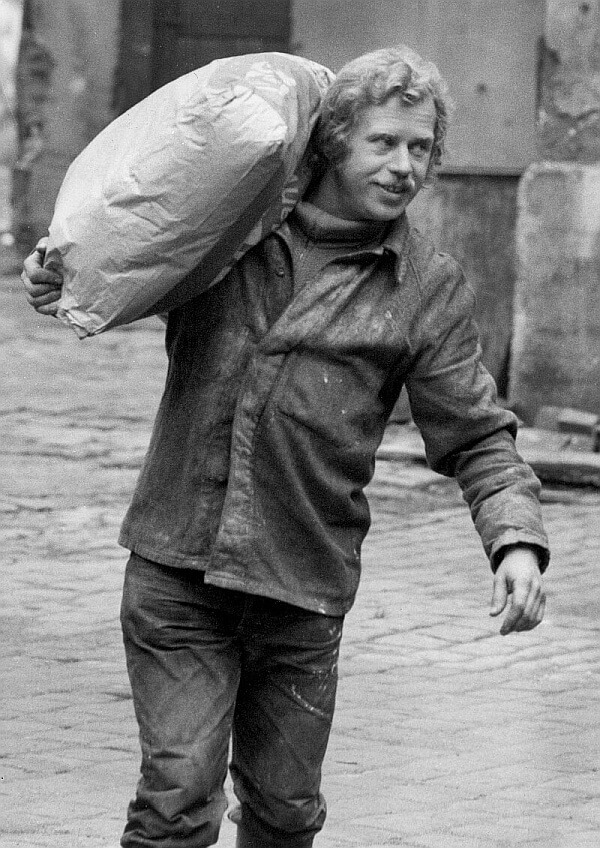
Support us with a financial donation
Does our work make sense to you and do you want to support the activities of the Vaclav Havel Library?
You can easily make a one-time payment by scanning the QR code.
Would you like to contribute regularly? Then we invite you to become a member of the Friends of the Vaclav Havel Library Club. What are the benefits of membership? Find out more.
Help us expand the archive
The Vaclav Havel Library manages an archive of writings, documents, photographs, video recordings and other materials related to the life and work of Vaclav Havel. This archive is predominantly in digital form. If you or someone close to you owns any original texts, correspondence, photographs, speeches or any other work by Vaclav Havel, we would be grateful if you could contact us.
You can donate in other ways too
Supporting a specific charitable or public benefit organization whose activities you appreciate or have been supporting for a long time is also possible through a will. This form of donation is quite common abroad, but in the Czech Republic this tradition is only just taking root.
Share information about us
The Vaclav Havel Library is open to media and promotional cooperation, mutual sharing of links, publishing our banners or information about our events.
For more information, please contact us.
Donations have their rules
At the Vaclav Havel Library, we uphold a transparent, responsible and ethical way of dealing with all those who contribute to fulfilling our purpose and implementing our strategy. Our code of ethics summarizes the basic rules of donations.
Get involved in volunteering
Would you like to get involved as a volunteer? That's great. We welcome anyone who wants to help our work.








